The Essential Guide series brings together the best recent coverage from New Scientist specially curated into beautiful compendiums about the most exciting themes in science and technology today. Written and edited by some of the world’s best science writers, these guides will leave you with everything you need to know about subjects from nutrition to the solar system and more.
CLIMATE CHANGE
New Scientist - The Essential Guides
CLIMATE BASICS
WHAT IS CAUSING CLIMATE CHANGE? • The planet is warming, and we are warming it. That conclusion is the central fact of the story of climate change. At its heart is nothing more than basic physics – and changes in how humanity is exploiting Earth’s resources.
HOW MUCH HAS THE PLANET WARMED? • As part of the Paris climate accord of December 2015, nearly every country in the world agreed to try to limit the global average temperature increase to 1.5°C above pre-industrial levels. To do that, we must first know how much our emissions have heated the planet already. The uncertainties start there.
HOW BAD COULD IT GET? • The world has made some progress in cutting greenhouse gas emissions, but not nearly enough. Meanwhile emerging research on “climate sensitivity” suggests that the impact of the emissions we are pumping into the atmosphere could be even greater than we feared.
CLIMATE MODELS AND UNCERTAINTY
EARTH’S CLIMATE PAST • Our planet’s climate has varied naturally over geological time. Piecing together the record brings some good news: the biosphere has endured some very hot periods and lived to tell the tale. The bad news is that the next hothouse may be more extreme than anything Earth has experienced before. In that case, it really is goodbye, cool world.
CLIMATE CYCLES
CLIMATE POLITICS
THE LONG ROAD TO CLIMATE ACTION • International efforts to combat climate change are a thicket of acronyms: IPCC, UNFCC and COP. They are the products of a remarkable consensus about the dangers of global warming. That consensus has proved easier to achieve than agreeing on or taking action.
WHY 1.5°C ?
NET-ZERO EMISSIONS • “Net zero” is the big buzz phrase around current efforts to limit global warming. But what exactly it means, and what mechanisms we can use to get there, are matters of intense debate.
COP26 AND COVID-19 • November 2021’s COP26 climate conference in Glasgow, UK, will be a crucial moment for agreeing meaningful climate action. It was delayed for a year by the covid-19 pandemic, a global crisis that has in some ways changed the framing of the climate crisis – and in other ways not.
“THERE IS NO REAL OBSTACLE OTHER THAN WITHIN OURSELVES” • The emissions drop brought by covid-19 won’t last, says climate scientist Corinne Le Quéré – unless we act to make it last.
CLIMATE IMPACTS
DEADLY HEAT • Most of us fail to take the “warming” in global warming seriously. If you live somewhere temperate, you might even welcome a rise of a few degrees as offering more opportunity for picnics, barbecues and relaxed afternoons in pub gardens. But even now, heatwaves kill.
POLAR PERIL • The Arctic and Antarctic, though inhospitable to humans, are vital to stabilising Earth’s climate – and they are at the sharp end of global warming. In the one, the danger signs are already all too clear. In the other, the risks are incalculable, in all senses.
EXTREME WEATHER • Heatwaves might be the most obvious climatic consequence of global warming, but they are far from the only one. From hurricanes to flooding, the effect of extreme weather events is already being felt across the world – and that’s only going to increase.
SPREADING LIKE WILDFIRES • Extreme heat unleashes one of humankind’s oldest enemies: fire. Wildfires are increasing in range and intensity as the...

 EG25
EG25
 EG24
EG24
 EG23
EG23
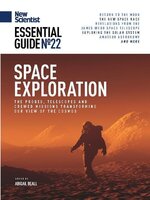 EG22
EG22
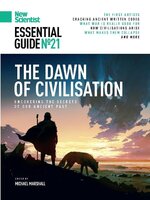 EG21
EG21
 EG20
EG20
 EG19
EG19
 EG18
EG18
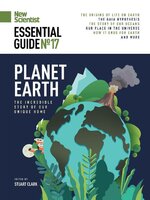 EG17
EG17
 EG16
EG16
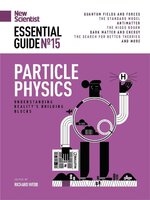 EG15
EG15
 EG14
EG14
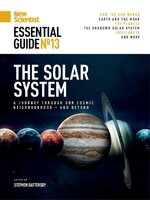 EG13
EG13
 EG12
EG12
 EG11
EG11
 EG10
EG10
 EG09
EG09
